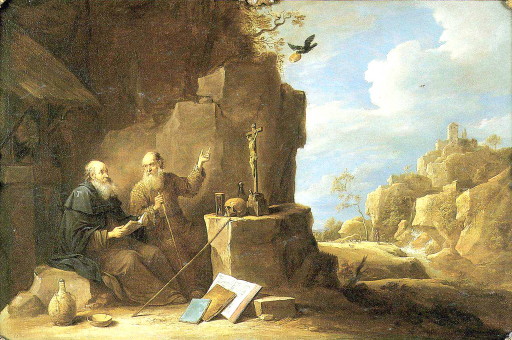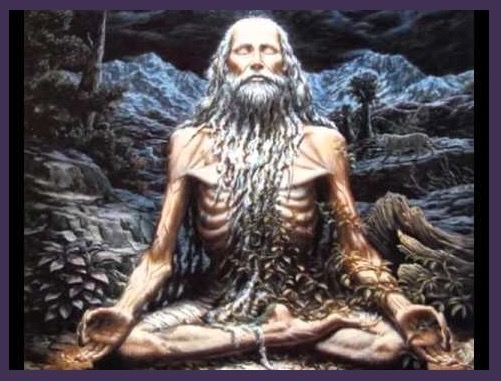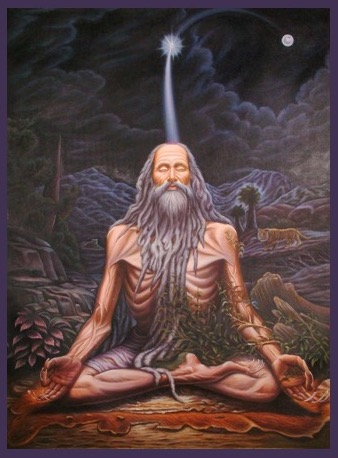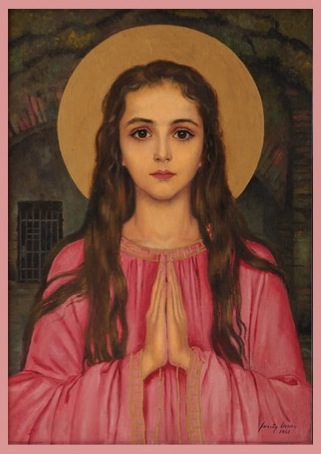 St. Anthony Abbot Meets St. Paul the Hermit by Petrus Agricola
St. Anthony Abbot Meets St. Paul the Hermit by Petrus AgricolaI admit to enjoying a bit of hagiography now and then—not the sanitized (sanctified?) versions of the Catholic Church online, but the older stuff, full of the outlandish and miraculous, from the early and Medieval church. Some really interesting oddments there.
One of my favorite passages is from St. Jerome’s Life of Paulus the First Hermit, translated by W. H. Freemantle, 1893 (the spelling is Freemantle’s).
St. Antony is living in the desert of the Thebaid region of ancient Egypt and he’s thinking he’s a pretty righteous monk, a near-perfect specimen of hermit. But then in the deep of the night, God says to him, “Nuh-uh, there’s this other dude named Paulus that blows you out of the water. Or the desert, as the case may be.†Maybe God didn’t express it in quite that way, but Antony gets the message and nothing will do but he has to seek out Paulus. Now, Paulus is a hundred and one at this point, Antony is ninety-five, but Antony is determined to make this arduous trek anyway. He doesn’t know where Paulus abides, but has faith that the Lord will lead him there.
So, he’s trekking and he’s trekking and as he’s standing out in the noontide sun wondering which way to go next and he says…
“I believe in my God: some time or other He will shew me the fellow-servant whom He promised me.” He said no more. All at once he beholds a creature of mingled shape, half horse half man, called by the poets Hippocentaur. At the sight of this he arms himself by making on his forehead the sign of salvation, and then exclaims, “Holloa! Where in these parts is a servant of God living?” The monster after gnashing out some kind of outlandish utterance, in words broken rather than spoken through his bristling lips, at length finds a friendly mode of communication, and extending his right hand points out the way desired. Then with swift flight he crosses the spreading plain and vanishes from the sight of his wondering companion. But whether the devil took this shape to terrify him, or whether it be that the desert which is known to abound in monstrous animals engenders that kind of creature also, we cannot decide.
Antony was gob-smacked, as you can imagine, but he went in the direction indicated.
Before long in a small rocky valley shut in on all sides he sees a mannikin with hooted snout, horned forehead, and extremities like goat’s feet. When he saw this, Antony like a good soldier seized the shield of faith and the helmet of hope: the creature none the less began to offer him the fruit of the palm tree to support him on his journey and as it were pledges of peace. Antony perceiving this stopped and asked who he was. The answer he received from him was this:
“I am a mortal being and one of the inhabitants of the Desert whom the Gentiles deluded by various forms of error worship under the names of Fauns, Satyrs and Incubi. I am sent to represent my tribe. We pray you in our behalf to entreat the favour of your Lord, and ours, who, we have learnt, came once to save the world, and ‘whose sound has gone forth into all the earth.’â€
As he uttered such words as these, the aged traveller’s cheeks streamed with tears, the marks of his deep feeling, which he shed in the fulness of his joy. He rejoiced over the Glory of Christ and the destruction of Satan, and marvelling all the while that he could understand the Satyr’s language, and striking the ground with his staff, he said,
“Woe to thee, Alexandria, who instead of God worshippest monsters! Woe to thee, harlot city, into which have flowed together the demons of the whole world! What will you say now? Beasts speak of Christ, and you instead of God worship monsters.â€
He had not finished speaking when, as if on wings, the wild creature fled away.
Can you blame it? He asks for a blessing and a good word put in for him and his kind to God and he gets a screed. But lest anyone’s skepticism assert itself over this encounter, St. Jerome hastens to add:
Let no one scruple to believe this incident; its truth is supported by what took place when Constantine was on the throne, a matter of which the whole world was witness. For a man of that kind was brought alive to Alexandria and shewn as a wonderful sight to the people. Afterwards his lifeless body, to prevent its decay through the summer heat, was preserved in salt and brought to Antioch that the Emperor might see it.
He was alive, but apparently that encounter didn’t go so well for this poor, assaulted then salted being.
Antony and Paulus do hook up eventually, though Paulus seems pretty eager to send this weeping and screeding old guy on an errand so he can die in peace. You can read the whole story here.





